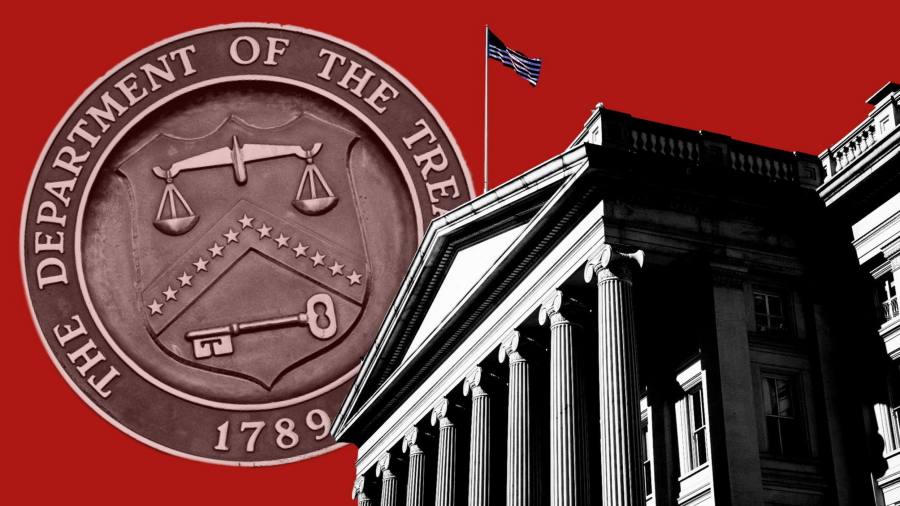US futures weakened ahead of the open in New York on Tuesday as the approaching US debt ceiling deadline continued to weigh on markets.
Contracts tracking Wall Street’s benchmark S&P 500 fell 0.3 per cent while those tracking the tech-heavy Nasdaq 100 lost 0.3 per cent ahead of the New York open.
The moves come after President Joe Biden and Republican House Speaker Kevin McCarthy on Monday evening failed to strike a deal to prevent the US government running out of money by the end of the month and avoid an unprecedented default.
Although both politicians described the meeting as “productive”, their deadline is fast approaching. Treasury secretary Janet Yellen has said her department “will be unable to continue to satisfy all of the government’s obligations by early June, and potentially as early as June 1”.
“This may be a bumpier ride than markets are currently pricing,” said analysts at JPMorgan, with “a lot of work to do” before the so-called X-date, when the government runs out of money, some time next month.
Europe’s region-wide Stoxx 600 index fell 0.3 per cent after a closely watched economic survey pointed to persistent price pressures in the eurozone, raising the likelihood that the European Central Bank will increase rates further.
Germany’s Dax fell 0.4 per cent. France’s Cac 40 lost 1 per cent, marking its biggest daily drop since the start of May.
The Paris index was dragged down by an 8 per cent drop in the shares of media group Vivendi after a filing to French market regulators revealed that its owner Vincent Bolloré sold about 1.5mn shares in the company.
Meanwhile, the eurozone’s purchasing managers’ index, which tracks monthly changes in economic activity, pointed to continued output price growth in the services sector.
“The strong services performance and subsequent inflation pressures will likely keep the ECB on its toes heading into the summer as any impact on overall inflation unfolds”, said Bert Colijn, senior eurozone economist at ING.
Traders are pricing in another interest rate increase by the central bank over the summer beyond the current rate of 3.25 per cent.
The yield on interest rate-sensitive two-year Treasury notes rose 0.07 percentage points to 4.39 per cent. The yield on the benchmark 10-year note was up 0.04 percentage points at 3.76 per cent. Bond yields rise when prices fall.
In commodity markets, prices for Brent crude rose 1.3 per cent to $76.99 a barrel. A measure of the dollar’s strength against a basket of six other currencies gained 0.4 per cent.
In Asia, China’s CSI 300 fell 1.4 per cent, with financials and technology stocks among the worst performers. Japan’s Topix fell 0.7 per cent and Hong Kong’s Hang Seng index dipped 1.3 per cent, taking its loss so far this year to 3.5 per cent.
Read the full article here




